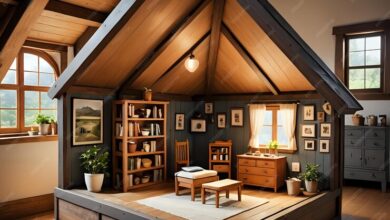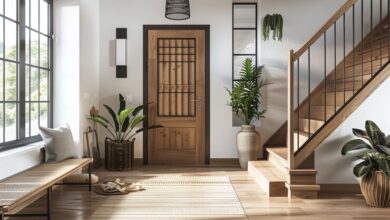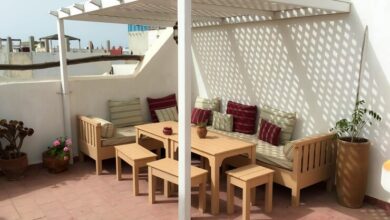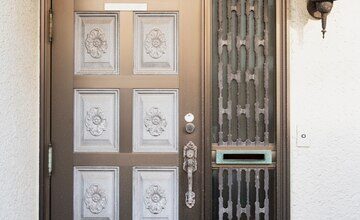Advantages And Disadvantages Of Sliding Doors
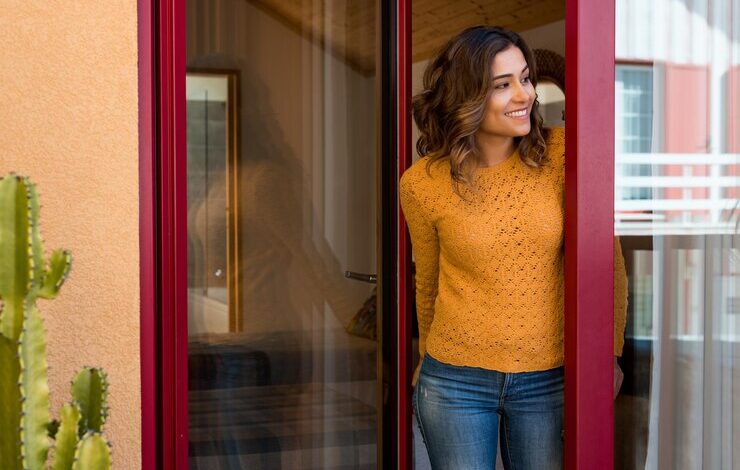
Advantages And Disadvantages Of Sliding Doors, Homeowners are increasingly choosing sliding doors because of their streamlined appearance and practical space-saving features. We will examine the many benefits and drawbacks of sliding doors in this blog post to assist you in making an informed choice for your house.
Sliding doors have many advantages, such as a smooth transition between indoor and outdoor areas, the possibility of energy savings, and more natural light. They could, however, have disadvantages as well, such less privacy and security issues. Sliding doors may be a good fit for your house if you consider its benefits and drawbacks.
What Are the Benefits Of Sliding Doors?
Natural Light And Ventilation:
Among the many benefits of sliding doors is the opportunity to optimize ventilation and natural light.
Large glass panels typically used for these doors let in a lot of natural light. This lessens the need for artificial lighting during the day and makes the space brighter and cozier.
Additionally, sliding doors are great at facilitating natural ventilation within living spaces, allowing fresh air to flow in.
You can improve the circulation of air in the room and have a steady supply of fresh air only by sliding the door open.
It creates a cool, cosy atmosphere in addition to enhancing the quality of indoor air.
Overall, sliding doors improve both practicality and appearance in houses by letting in a lot of natural light and facilitating a smooth flow of fresh air.
They Require Little Space:
Sliding doors have several advantages, one of which is their space-saving design.
Unlike traditional hinged doors that need enough floor area to open and close, sliding doors glide horizontally along a wall or partition on a track system.
They are therefore a great choice for cramped quarters or rooms with little floor space.
Sliding doors increase the amount of space that is usable in both residential and commercial buildings by doing away with the requirement for clearance space.
Additionally, because of their smooth sliding motion, they provide hassle-free access without impeding nearby furniture or fixtures.
This feature is especially helpful in places where space optimization is crucial, such as small spaces or narrow hallways.
Sliding doors also conserve space by giving the appearance of openness and continuity, which improves the aesthetic appeal of any design.
Sliding Doors Are Energy Efficient:
Due to their many advantages, sliding doors are a popular choice among homeowners.
They contribute to the year-round insulation and comfort of your home because they are particularly energy-efficient.
Sliding doors are designed to prevent heat loss in the winter and keep your home cool in the summer.
They have tight seals and are made with high-quality materials to prevent drafts and air leakage, ensuring that your home is energy-efficient.
Sliding doors also let in more natural light, which reduces the amount of artificial lighting you need to utilise.
This lessens your carbon footprint in addition to lowering your utility expenditures. Sliding doors’ energy efficiency benefits your home’s comfort and the environment.
You can have a more sustainable living environment, more natural light, and lower energy bills by installing sliding doors.
You Can Enjoy An Improved Outdoor/Indoor Flow:
The many benefits that sliding doors can provide can enhance your living area in several ways. The better indoor/outdoor flow they offer is one of the main advantages.
You can easily create a seamless transition by connecting your indoor and outdoor spaces with sliding doors.
It contributes to the natural ventilation and light that might enlarge the feeling of space in your house.
Sliding doors also provide you with broad views of your surroundings, so you can take in the beauty of your outdoor space from the comforts of your own house.
Sliding doors are attractive because they’re easy to open and close, which makes them perfect for households with young children or those with mobility impairments.
Sliding doors are a popular option for homeowners wishing to enhance the aesthetics and utility of their living areas since they are adaptable and visually beautiful.
What Are The Disadvantages Of Sliding Doors?
Maintenance:
Although they give a contemporary feel to any area, sliding doors have certain disadvantages.
The fact that they need frequent maintenance is one of their biggest drawbacks. Sliding doors, in contrast to conventional hinged doors, have intricate mechanics that allow for seamless functioning.
These parts may become worn out or misaligned with time, which can cause squeaky or challenging sliding motions.
Furthermore, the tracks’ ability to function smoothly can be hampered by the easy accumulation of dust, grit, and debris.
To prevent these problems and guarantee optimal operation, it is imperative that you clean and lubricate them often.
However, maintenance can be labor-intensive and need specific equipment or knowledge, which can make it difficult for those with little means or skill to perform the required chores.
Moreover, the presence of multiple moving parts increases the likelihood of potential failures or breakdowns, leading to additional repair costs.
Therefore, while sliding doors offer significant benefits, it is crucial not to overlook their maintenance demands when considering their installation.
Security vulnerabilities:
Traditional hinged doors can be replaced with more elegant and compact sliding doors.
They do, however, have a few notable drawbacks, especially in terms of security.
The ease with which burglars can force sliding doors open is one of their main disadvantages.
They are an obvious target for burglars because of their enormous glass panels, which also provide them a clear view of the house and any valuables within. This is what makes them so visually enticing.
Furthermore, sliding doors may have comparatively flimsy locking mechanisms, which makes them less safe than solid wood doors equipped with deadbolt locks.
Last but not least, sliding doors are vulnerable to wear and tear over time, which can cause the tracks and rollers to misalign or stop working, leaving gaps that jeopardize the integrity of the door.
This, in turn, can lead to unauthorized access or reduce its ability to maintain a tight seal against weather elements.
While there are ways to enhance the security features of sliding doors, it’s essential to consider these disadvantages when choosing the right type of door for your home or business.
FAQS:
Can sliding doors increase the value of your home and its resale potential?
Your home’s overall popularity can be improved by sliding doors, which could raise its value and draw in purchasers to the open, contemporary vibe they offer.
How do sliding doors compare to other door types in terms of security?
Particularly if they are not correctly secured or do not have strong locking mechanisms and reinforced glass, sliding doors may provide security risks. There may be a need for additional security measures.
What choices are available to customize sliding doors to match your home’s style and design preferences?
Glass selections, hardware types, frame materials, and finishes can all be changed on sliding doors to complement the design and aesthetics of your house. Speak with a provider about your possibilities.
